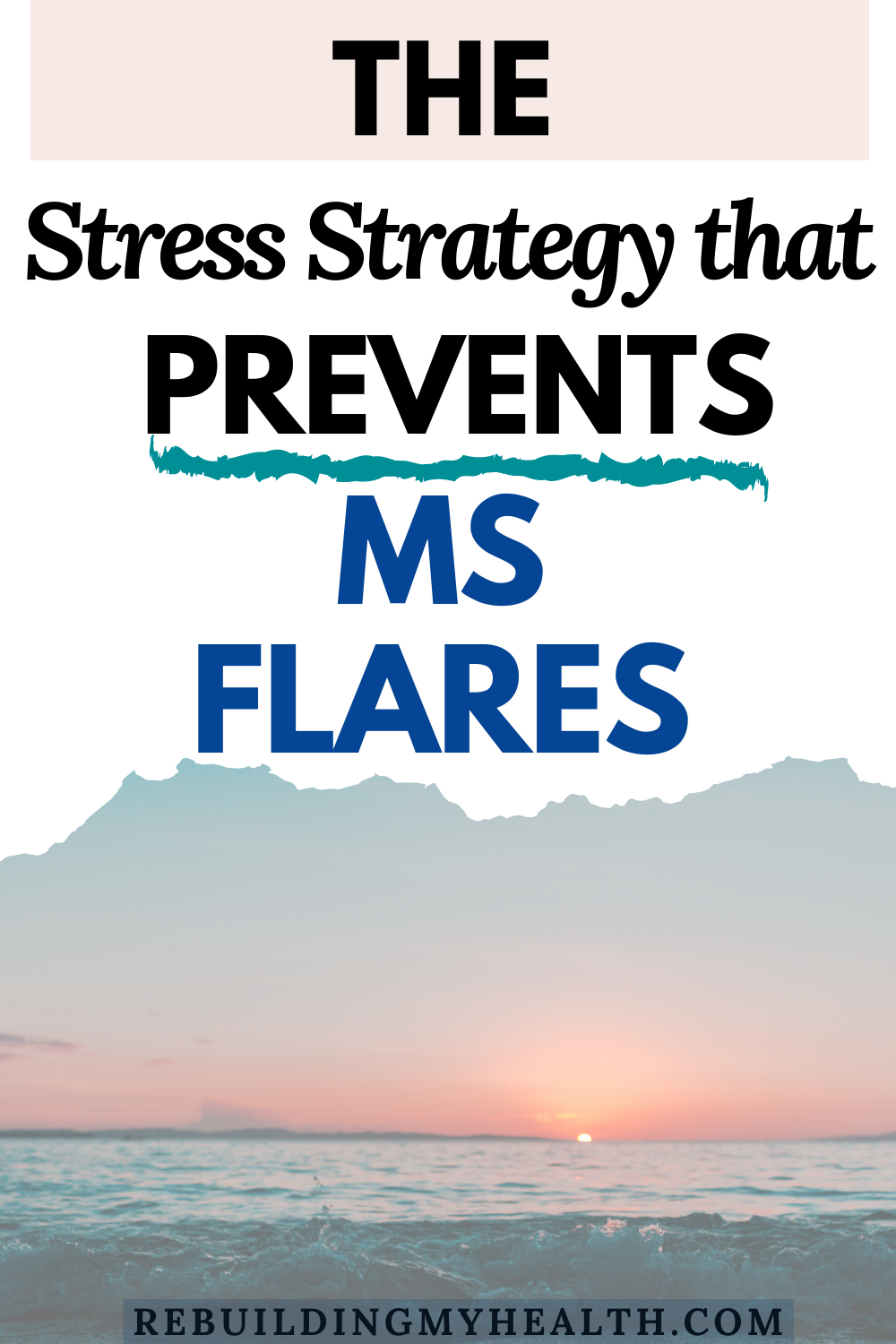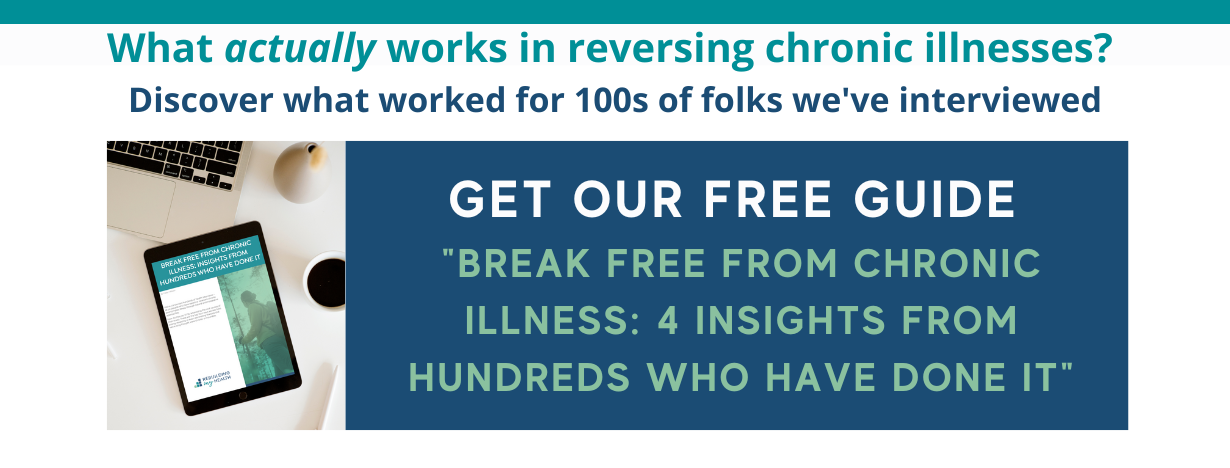The Stress-Reducing Tactic that Helps an MS Warrior Prevent Flares
When Lisa Lovely is stressed, her body lets her know almost immediately. It’s like her own personal biosensor.
For Lisa, who has multiple sclerosis, extreme stress quickly impacts her circulation and mobility.
“My leg doesn’t work and my foot turns purple,” she says. “If it’s bad, it goes up my leg. I’m grateful for it sometimes because my body knows. Sometimes I can’t recognize my own stress.”
A year ago, a setback landed her in the hospital for three days. When she had arrived at the emergency room, her arms and legs were purple from lack of circulation, she was dizzy and had difficulty breathing.
She expected tests to turn up a blood clot. Instead, she and her practitioners eventually determined it was a neuro-vascular event induced by stress – triggered by financial worries at the time.
“I figured out that that stress I’ve been shouldering finally tipped and literally sent my neurological system into chaos. Stress and MS do not mix,” she says.
Until that point, Lisa had been managing her MS symptoms with the Wahls Protocol diet and exercise. Clearly, she needed more tools in her toolkit, leading her to add meditation and breathing.
Stress and Chronic Illness
Studies back up the destructive force of stress on chronic illnesses such as MS.
Mindfulness practices, Lisa found, worked in bringing her body back into balance – most of the time.
In fact, Lisa went on to have a powerhouse year: she published a book, graduated as a Functional Nutritional Therapy Practitioner (FNTP), became a Wahls Protocol Certified Health Practitioner, legally opened her nutrition practice and even appeared on the show, The Doctors, to share her MS recovery story.
She was doing well – until the stress of the past two months again pushed Lisa to find new strategies.
In February, she was accidentally exposed to gluten at an event. For a super gluten-sensitive person like her, gluten can kick off a weeks- or months-long inflammatory response. Within moments of eating a meal suspected to contain gluten, she was slurring her speech and limping.
“Gluten is like rat poison for me,” she says.
As she was recovering from gluten exposure, the economic impact of COVID-19 hit home. A contract job ended, and like many of us, she was homeschooling her kids.
“My kids were home, I felt ill, I was crisis schooling, trying to take care of myself, stressed out financially from the job loss and it was all building up,” she says. “I stayed with the protocol I have developed for myself these past few years, but needed something additional to help me mitigate this stress response. It was HIGH!”
Tapping for Stress Relief
For help, Lisa turned to tapping, a technique she had long been curious about.
Nick and Jessica Ortner popularized tapping, also known as Emotional Freedom Techniques (EFT), through a series of books and programs. Tapping involves using your fingertips on specific meridian endpoints of the body, while focusing on negative emotions or physical sensations.
Based on principles of ancient Chinese acupressure and modern psychology, the technique is said to help with stress, anxiety, emotional disorders, chronic pain and more.
For Lisa, something about the concept just felt right. Eastern and ancestral medicine have both worked exceptionally well for her over the years.
“I liked the idea behind it, the whole mind-body connection, tapping on meridian endpoints of your body, focusing on the physical sensations of your fingertips, while focusing on negative emotions,” she says. “I was having all sorts of negative emotions, of course.”
She started with Nick Ortner’s book, The Tapping Solution: A Revolutionary System for Stress-Free Living, and quickly began applying what she learned.
Additionally, online apps and videos (see below for a few) guided her through where and how to tap, and how to weave in the emotional part.
Lisa found she could do the exercises anytime and anywhere to diffuse tension quickly.
She expected tapping to help, but not necessarily to ease symptoms so rapidly.
“It’s pretty immediate,” she says. “You tap meridian points like five to seven times. There are nine meridian points, and you just move on through it. It only takes five to 10 minutes.”
Lisa applies EFT any time the need arises. When circulation issues creep up, tapping diffuses the stress and prevents vascular problems from coming on or worsening.
“I tap with an intention to provide healing of the stress response in my body,” she says. “I do it when feeling stressed, when bringing my body to be present again. It checks me back in.”

A Complete Lifestyle Approach to MS
Tapping for stress relief has now become a go-to in Lisa’s toolkit to manage her overall health and MS symptoms.
“Chronic disease is complex and requires a multi-faceted approach,” she says. “I’ve had to reframe my thinking so many times in these past two to three years! I’m so grateful for my body’s biosensor (loss of circulation) as this is my indicator that my body is locked in a serious, chronic, excessive stress response.”
The Wahls Protocol worked so well for her that Lisa published a book about her MS recovery, Seven Seasons, and became a Wahls Protocol Certified Health Practitioner. Because it’s personally been transformative, she now guides others in implementing a lifestyle approach.
Lisa stresses that it’s about returning to the way we used to eat and treat our bodies.
“When we go back to those roots, we can heal the body,” she says.
Find and follow Lisa at https://www.lisalovely.com.
Curious About Tapping?
Check out a few free resources:
– Releasing coronavirus anxiety
– For healthcare workers and first-responders – The creators of EFT have made their premium app free for six months for healthcare workers and first responders.
If you enjoyed this, check out Lisa’s complete MS recovery story: Woman Reverses Multiple Sclerosis Symptoms after Swapping Drugs for Diet, Lifestyle.
Get a copy of our free guide, Break Free from Chronic Illness: 4 Insights from Hundreds Who Have Done It.
The information on this site is for educational and inspirational purposes only and is not intended to replace the advice of qualified professionals. Keep in mind that what works for one person may not work for another. Always consult your healthcare practitioners before beginning new approaches or treatments. Some links on Rebuilding My Health may be affiliate links. This means that we may receive a commission - with no additional cost to you - if you make any purchases using those affiliate links. Rebuilding My Health is a participant in the Amazon Services LLC Associates Program. Learn more.


